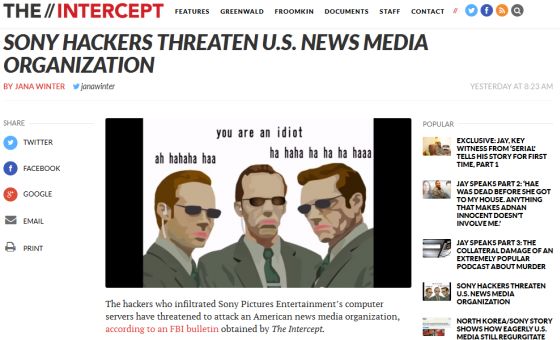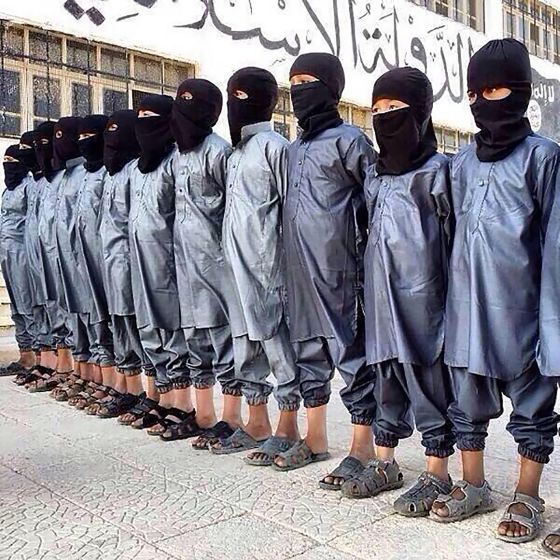I am powerless and my life is out of control.
I believe a higher power can restore my sanity.
I submit to the will of God, the only power that can guide my life.
OK. I neither believe in God nor am I an alcoholic, but I based the lines above on the first three steps of the twelve-step program created by Alcoholics Anonymous just to convey the fact that submission to the will of God is a practice (or aspiration) that shapes the lives of millions of Americans — people who might not necessarily describe themselves as religious.
Soumission (Submission) is the title of Michel Houellebecq’s new novel — a book which even before its release this week and before the Charlie Hebdo shootings took place, had stirred a huge amount of controversy in France since it depicts a not-too-distant future in which the French submit to Islamic rule.
Given that premise, it’s not hard to see why Houellebecq is being accused of pandering to the fears of the far right — of those who believe in the National Front’s slogan, “France for the French.” But while Houellebecq’s appetite for controversy is undeniable, he says he’s neither trying to defend secularism nor fuel Islamophobia.
In an interview with The Paris Review, Houellebecq says that he thought he was an atheist but was really an agnostic.
Usually that word serves as a screen for atheism but not, I think, in my case. When, in the light of what I know, I reexamine the question whether there is a creator, a cosmic order, that kind of thing, I realize that I don’t actually have an answer.
The Economist summarizes Soumission in this way:
The novel, which has not yet been translated into English, is narrated by François, a literature professor at the Sorbonne, who drifts between casual sex and microwaved ready-made meals in a state of wry detachment and ennui. Then, in an imaginary France of 2022, a political earthquake shakes him out of his torpor. The two mainstream parties, on the left and the right, are eliminated in the first round of a presidential election. This leaves French voters with the choice between Marine Le Pen’s populist National Front—and the Muslim Fraternity, a new party led by Mohammed Ben Abbes. Thanks to an anti-Le Pen front, Mr Ben Abbes is elected and thus begins Muslim rule.
After a period of disorder, France returns to a strange calm under its apparently moderate new Muslim president; and François, who fled briefly, returns to Paris. But the city, and his university, are unrecognisable. More women are veiled, and give up work to look after their menfolk (helping to bring down France’s unemployment rate). Polygamy is made legal. France embarks on a geopolitical project to merge Europe with Muslim Mediterranean states. Saudi Arabia has poured petrodollars into better pay for professors and posh apartments on the city’s left bank. And his own university has been rebranded the Islamic University of Paris-Sorbonne. Will François, an atheist, resist, or flee the new regime or compromise with it?
While this sounds like a graphic representation of Islamophobic fears prevalent not only in France but across much of Europe, Houellebecq says:
I tried to put myself in the place of a Muslim, and I realized that, in reality, they are in a totally schizophrenic situation. Because overall Muslims aren’t interested in economic issues, their big issues are what we nowadays call societal issues. On these issues, obviously, they are very far from the left and even further from the Green Party. Just think of gay marriage and you’ll see what I mean, but the same is true across the board. And one doesn’t really see why they’d vote for the right, much less for the extreme right, which utterly rejects them. So if a Muslim wants to vote, what’s he supposed to do? The truth is, he’s in an impossible situation. He has no representation whatsoever.
I think there is a real need for God and that the return of religion is not a slogan but a reality, and that it is very much on the rise.
That hypothesis is central to the book, but we know that it has been discredited for many years by numerous researchers, who have shown that we are actually witnessing a progressive secularization of Islam, and that violence and radicalism should be understood as the death throes of Islamism. That is the argument made by Olivier Roy, and many other people who have worked on this question for more than twenty years.
This is not what I have observed, although in North and South America, Islam has benefited less than the evangelicals. This is not a French phenomenon, it’s almost global. I don’t know about Asia, but the case of Africa is interesting because there you have the two great religious powers on the rise — evangelical Christianity and Islam. I remain in many ways a Comtean, and I don’t believe that a society can survive without religion.
[I]n your book you describe, in a very blurry and vague way, various world events, and yet the reader never knows quite what these are. This takes us into the realm of fantasy, doesn’t it, into the politics of fear.
Yes, perhaps. Yes, the book has a scary side. I use scare tactics.
Like imagining the prospect of Islam taking over the country?
Actually, it’s not clear what we are meant to be afraid of, nativists or Muslims. I leave that unresolved.
Have you asked yourself what the effect might be of a novel based on such a hypothesis?
None. No effect whatsoever.
You don’t think it will help reinforce the image of France that I just described, in which Islam hangs overhead like the sword of Damocles, like the most frightening thing of all?
In any case, that’s pretty much all the media talks about, they couldn’t talk about it more. It would be impossible to talk about it more than they already do, so my book won’t have any effect.
Doesn’t it make you want to write about something else so as not to join the pack?
No, part of my work is to talk about what everyone is talking about, objectively. I belong to my own time.
[Y]our book describes the replacement of the Catholic religion by Islam.
No. My book describes the destruction of the philosophy handed down by the Enlightenment, which no longer makes sense to anyone, or to very few people. Catholicism, by contrast, is doing rather well. I would maintain that an alliance between Catholics and Muslims is possible. We’ve seen it happen before, it could happen again.
You who have become an agnostic, you can look on cheerfully and watch the destruction of Enlightenment philosophy?
Yes. It has to happen sometime and it might as well be now. In this sense, too, I am a Comtean. We are in what he calls the metaphysical stage, which began in the Middle Ages and whose whole point was to destroy the phase that preceded it. In itself, it can produce nothing, just emptiness and unhappiness. So yes, I am hostile to Enlightenment philosophy, I need to make that perfectly clear.
[I]f Catholicism doesn’t work, that’s because it’s already run its course, it seems to belong to the past, it has defeated itself. Islam is an image of the future. Why has the idea of the Nation stalled out? Because it’s been abused too long.
Some might be surprised that you chose to go in this direction when your last book was greeted as such a triumph that it silenced your critics.
The true answer is that, frankly, I didn’t choose. The book started with a conversion to Catholicism that should have taken place but didn’t.
Isn’t there something despairing about this gesture, which you didn’t really choose?
The despair comes from saying good-bye to a civilization, however ancient. But in the end the Koran turns out to be much better than I thought, now that I’ve reread it — or rather, read it. The most obvious conclusion is that the jihadists are bad Muslims. Obviously, as with all religious texts, there is room for interpretation, but an honest reading will conclude that a holy war of aggression is not generally sanctioned, prayer alone is valid. So you might say I’ve changed my opinion. That’s why I don’t feel that I’m writing out of fear.
In its crudest expressions, the Clash of Cultures discourse presents a Christian West threatened by Islam, but many of those who reject this narrative use one that is no less polarizing. It presents secular moderates challenged by Islamic extremists — it’s still Religion vs. The Enlightenment, superstition vs. reason.
Much as the West promotes the idea of religious freedom in the context of civil liberties, religion is meant to be a private affair that doesn’t intrude into the social sphere outside the carefully circumscribed territories of church, temple, and mosque. We expect religious freedom to be coupled with religious restraint.
The real struggle, it seems to me, is not ultimately philosophical and theological — it’s not about the existence or non-existence of God. It’s about values.
What count are not values that serve as emblems of identity (often wrapped around nationalism), but instead those that guide individual action and shape society.
We profess values which are libertarian and egalitarian and yet have created societies in which the guiding values are those of materialism, competition, and personal autonomy — values that are all socially corrosive.
Society is relentlessly being atomized, reduced to a social unit of one, captured in the lonely image of the selfie. This is what we’ve been sold and what we’ve bought, but I don’t think it’s what we want.
Spellbound by technological progress, we have neither expected nor demanded that material advances should lead to social advances — that better equipped societies should also be better functioning, happier, more caring societies.
What the false promise of materially sustained, individual autonomy has created is the expectation that the more control we possess over life, the better it will get. We imagine that we must either be in control or fall under control.
From this vantage point, the concept of submission provokes fears of domination, and yet what it really all it means is to come into alignment with the way things are.
Where religion intrudes and so often fails is through the forcible imposition of rigid representations of such an alignment. But submission itself means seeing we belong to life — something that cannot be possessed or controlled.


